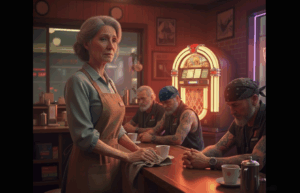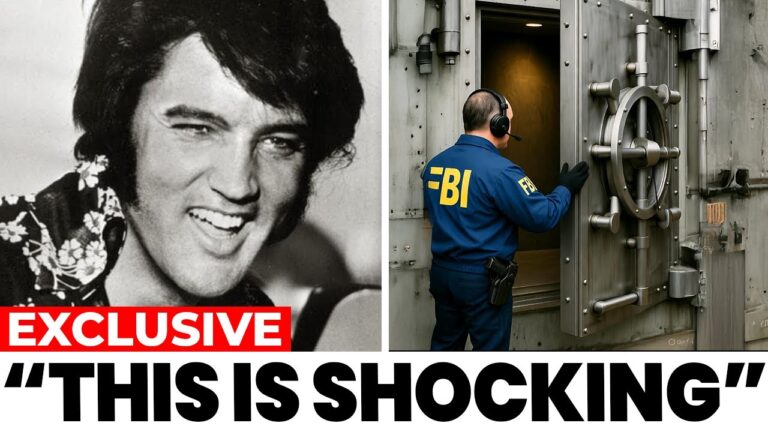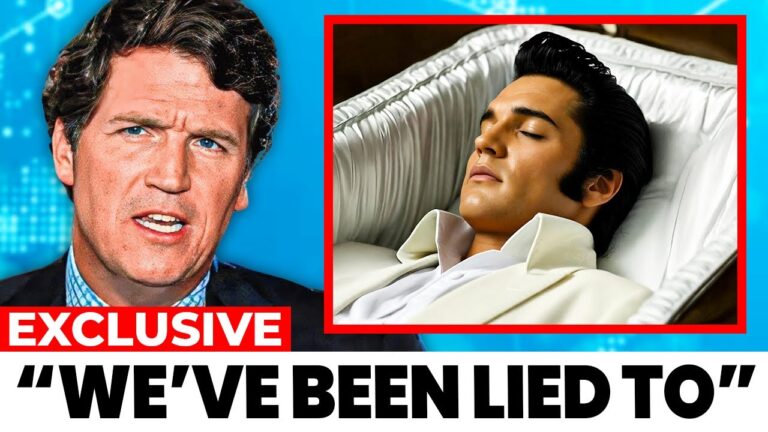The desert at night was colder than anyone expected. The wind from the Nevada highway carried dust and silence in equal measure. At the edge of the road stood a small diner — paint peeling, a flickering neon sign barely clinging to its last glow: “The Last Stop Café — Open 10 PM to 3 AM.” Inside, the smell of old coffee and cinnamon hung in the air. Mae, the owner, wiped the counter the same way she had for the past thirty years. She was in her sixties, hair tied back in a bun, her eyes soft but unreadable — the kind of eyes that had seen both laughter and loss and decided to keep them to herself.
Every night, drifters stopped by. Truckers, lonely travelers, sometimes soldiers on their way home. She never asked names. She only poured coffee, listened, and let the jukebox pick its own songs. No one knew why the café only opened after dark, or why it was named The Last Stop. But everyone who came left a little quieter than when they’d arrived.
That night, a group of three bikers roared into the empty parking lot, engines cutting through the silence. They were coated in road dust, eyes red from wind and exhaustion. The leader, Cole, was tall, early forties, his face hard but hollow, like someone who had just buried a piece of himself. His jacket bore a patch: Iron Nomads. The other two — Ray and June — followed him in, looking unsure if this place even served real food.
The bell above the door rang. Mae looked up, smiled faintly. “Coffee?” she asked.

“Three,” Cole said. “Strong.”
She nodded and turned to the pot. The jukebox in the corner suddenly whirred, and an old country tune filled the room — “Always on My Mind.”
Cole froze mid-step. His hand tightened on his glove. “Turn that off,” he muttered.
Mae didn’t move. “It plays what it wants.”
Cole’s voice rose. “I said turn it off.”
But then June, the woman in his group, whispered, “That was his friend’s song. The one who…”
Cole turned away before she could finish.
Mae poured the coffee, set it down gently. “Sometimes, the right song comes on even when we don’t want to hear it.”
Cole sat, jaw clenched. “You believe in that fate crap?”
Mae shrugged. “No. But I believe in music. It remembers things people try to forget.”
The clock ticked softly. Outside, the wind howled across the asphalt. The three bikers sat in silence, sipping burnt coffee, their reflection trembling in the glass.
After a while, June looked up. “You run this place alone?”
Mae nodded. “Always have. My husband used to, too.”
Ray asked, “Where’s he now?”
Mae smiled — not sad, just tired. “He went for a ride one night. Said he’d come back for one last cup. That was thirty years ago.”
Cole looked up, meeting her eyes for the first time. “He never came back?”
Mae shook her head slowly. “Maybe he did. Not everyone comes back the same way they left.”
The jukebox clicked again. Another song began — the hum of an old Harley layered into the melody, like the ghost of an engine. Cole glanced at the machine. “You got a custom track on that thing?”
Mae tilted her head. “No. It plays for those who need to listen.”
The night deepened. A storm rolled far in the distance, lightning flickering across the horizon.
Cole finally spoke. “My friend died last week. Bike accident. We just buried him. Thought maybe riding would help.”
Mae listened, hands folded on the counter. “Did it?”
He shook his head. “Every road looks like the one we took him down.”
Mae poured him another cup, her tone gentle. “Coffee won’t fix that, but it’ll keep you company.”
He almost smiled. “You sound like my mother.”
“Was she kind?” Mae asked.
“Too kind,” he said. “Didn’t deserve her.”
The jukebox hummed again, almost softly this time — as if the machine itself was breathing.
Cole looked at it and muttered, “If ghosts exist, I bet they hang out in places like this.”
Mae smiled faintly. “Maybe they just come back for their coffee.”
Thunder rumbled outside. The neon sign flickered. The bikers finished their cups. June placed a few crumpled bills on the counter, but Mae pushed them back. “First visit’s on the house,” she said. “That’s the rule.”
As they headed out, Cole lingered. He reached into his pocket, pulled out a small metal patch — the insignia of his late friend’s bike club. He set it on the counter. “He would’ve liked this place.”
Mae picked it up, froze. Her fingers traced the logo, and something shifted in her expression — recognition, disbelief, ache.
She whispered, “He already did.”
Cole frowned. “You knew him?”
Mae nodded slowly. “Thirty years ago. He promised he’d come back for a cup of coffee.”
Cole’s breath caught. “You’re saying—”
Mae looked out the window, where three taillights faded into the desert night.
“Seems he finally kept his promise.”
The jukebox fell silent. Outside, only the sound of engines fading into the wind remained.
The next morning, when the sun rose over the Nevada desert, the neon sign of The Last Stop Café flickered off one final time. A new note was taped to the window:
“Closed for good. Thanks for stopping by.”
And on the counter, next to an empty coffee cup, lay the metal patch — polished clean — shining faintly under the morning light.





